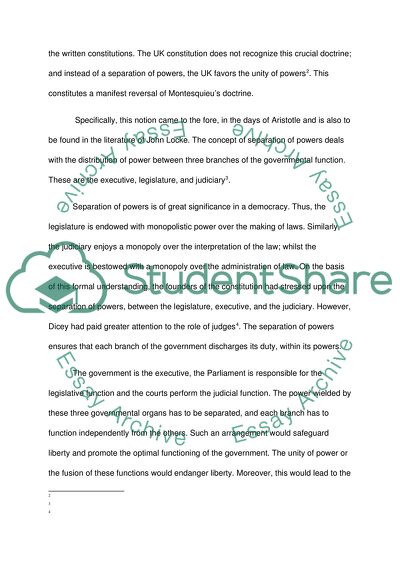Cite this document
(The Doctrine of Separation of Powers Essay Example | Topics and Well Written Essays - 1250 words, n.d.)
The Doctrine of Separation of Powers Essay Example | Topics and Well Written Essays - 1250 words. https://studentshare.org/politics/1733940-separation-of-powers-in-the-constitution
The Doctrine of Separation of Powers Essay Example | Topics and Well Written Essays - 1250 words. https://studentshare.org/politics/1733940-separation-of-powers-in-the-constitution
(The Doctrine of Separation of Powers Essay Example | Topics and Well Written Essays - 1250 Words)
The Doctrine of Separation of Powers Essay Example | Topics and Well Written Essays - 1250 Words. https://studentshare.org/politics/1733940-separation-of-powers-in-the-constitution.
The Doctrine of Separation of Powers Essay Example | Topics and Well Written Essays - 1250 Words. https://studentshare.org/politics/1733940-separation-of-powers-in-the-constitution.
“The Doctrine of Separation of Powers Essay Example | Topics and Well Written Essays - 1250 Words”. https://studentshare.org/politics/1733940-separation-of-powers-in-the-constitution.


